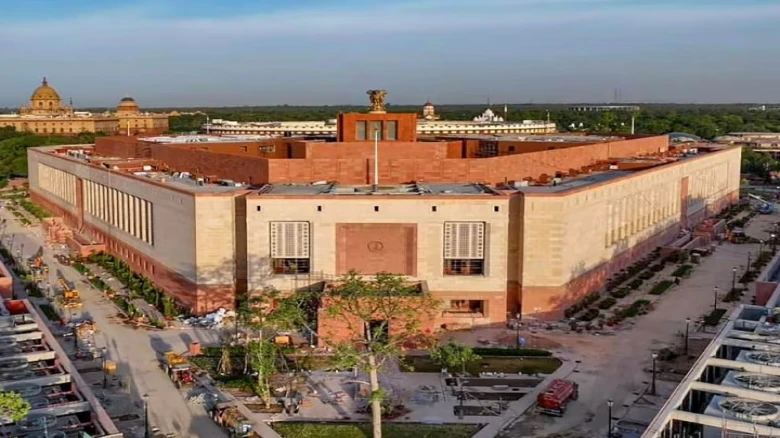Regional

The much-anticipated draft report on three bills aiming to replace India's existing criminal laws has hit a temporary roadblock as the...
Digital Desk: The much-anticipated draft report on three bills aiming to replace India's existing criminal laws has hit a temporary roadblock as the Parliamentary Standing Committee of Home Affairs decided to withhold it during their recent session on Friday. The delay comes as key opposition figures, including Lok Sabha Leader of Opposition and Congress leader Adhir Ranjan Chowdhary, P. Chidambaram of the Congress, Derek O'Brien of the Trinamool Congress (TMC), and NR Elango from the DMK, requested more time to review the drafts.
The next committee meeting is scheduled for November 6, 2023. The Parliamentary Standing Committee on Home Affairs, chaired by Bharatiya Janata Party (BJP) MP Brij, convened in the committee room of the Parliament House Annexe for a comprehensive review of the draft reports on the three bills in question.
The bills in question are 'The Bharatiya Nyaya Sanhita 2023,' 'The Bharatiya Nagarik Suraksha Sanhita 2023,' and 'The Bharatiya Sakshya 2023,' which are proposed to replace the existing criminal laws, namely the Indian Penal Code (IPC) 1860, Code of Criminal Procedure (CrPC) 1973, and the Indian Evidence Act 1872, respectively.
In his initial statement when introducing these bills on August 11, Home Minister Amit Shah emphasized the need for a significant change in the country's legal framework. He underscored that these new laws would not primarily aim to punish individuals but to ensure justice and deter crime. Shah argued that the British-era laws, which have been in force for over a century, were designed to serve colonial interests rather than delivering justice to Indian citizens.
The Home Minister explained the key modifications planned in each of the proposed laws. The Bharatiya Nagarik Suraksha Sanhita Bill, which will replace the CrPC, will now encompass 533 sections, including 160 amended sections, nine new sections, and nine repealed sections. Similarly, the Bharatiya Nyaya Sanhita Bill, aimed at replacing the IPC, will have 356 sections, down from the previous 511, incorporating 175 amended sections, eight new sections, and 22 repealed sections. Lastly, the Bharatiya Sakshya Bill, replacing the Evidence Act, will comprise 170 sections, with 23 sections changed, one new section added, and five repealed.
The delay in presenting the draft report to the committee suggests that opposition leaders are seeking a thorough examination of the proposed reforms. Their concerns may include ensuring that the new laws adequately protect the rights of Indian citizens, guarantee justice, and address potential ambiguities or inadequacies in the bills.
The next committee meeting in November will provide further insights into the fate of these significant legal reforms. In the meantime, the Indian public and legal experts await a final decision on the bills' content and implementation, as these reforms could have a far-reaching impact on India's legal landscape.
Leave A Comment